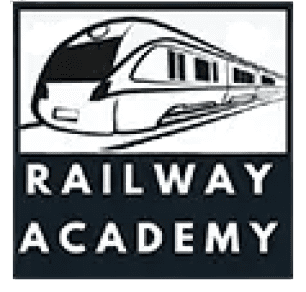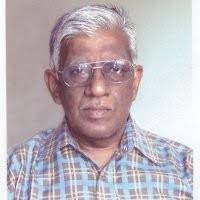20 hours Self Paced Certificate Course in Railway Signaling Circuit Design
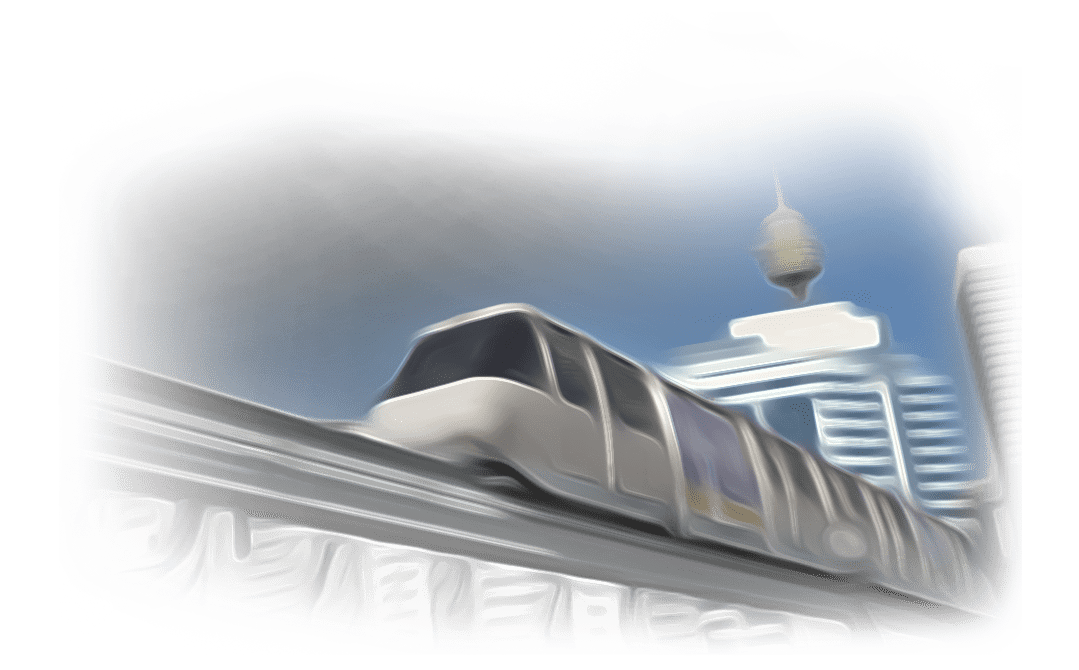

Duration
Approx 20 hours to complete

Professional Level

Language
Subtitles: English

Shareable Certificate
Earn a certificate upon completion

100% Online
Start instantly and learn at your own schedule

Flexible Deadlines
Reset deadlines in accordance with your schedule.
Duration
Approx. 20 hours to complete
Professional Level
Course designed by experts in Railway domain
Language
Subtitles: English
Shareable Certificate
Earn a certificate upon completion
100% Online
Start instantly and learn at your own schedule.
Flexible Deadlines
Reset deadlines in accordance with your schedule.
Who can Apply ?
Engineers who intend to work as
– Signalling Designers in various Railway systems.
– Those who are having Electrical/ Electronic/ Computer/ Telecom Background/ Knowledge.
What will you Learn ?
Introduction to various Railway Signalling systems
1Basic Concepts in various Railway Signalling systems
2Engineering Scale Plan (ESP)
3Isolation and Signal Interlock Plan
4Train Detection Systems; Signalling Relays and Interlocking
5Signal Aspects and Indications
6Skills you will Gain
- Introduction to various Railway Signalling systems
- Basic Concepts in various Railway Signalling systems
- Engineering Scale Plan (ESP)
- Isolation and Signal Interlock Plan
- Train Detection Systems; Signalling Relays and Interlocking
Get Certified by Railway Academy
Curriculum
Session 1: Introduction to various Railway Signalling systems
Overview of Railway Signalling
∙ Introduction to Railway Signalling Systems
∙ Importance of Signalling in Rail Transportation
Session 2: Basic Concepts in various Railway Signalling systems
∙ Block Systems and Track Circuits
∙ Types of Signalling (Absolute, Permissive, etc.)
∙ Interlocking Systems
Session 3: Engineering Scale Plan (ESP)
∙ Overview of ESP
∙ Features of ESP
∙ Case study
Session 4: Isolation
∙ Means of Isolation
∙ Slip side and Catch sidings
∙ Gradients
∙ Introduction of Gradients
∙ Types of Gradients
Session 5: Signal Interlock Plan
ESP to SIP design
∙ Standards of interlocking
Signals and Cross overs
∙ Types of Signals
∙ Location of Signals
∙ Switches and their operations
Session 6: Train Detection Systems
∙ Introduction
∙ Types of Train detection Systems
Session 7: Signalling Relays and Interlocking
Role of Relays in Railway Signalling
∙ Electromagnetic Relays
∙ Solid-State Relays
Interlocking Systems
∙ Introduction to Interlocking
∙ Types of Interlocking
Session 8: Designing Interlocking Systems
∙ Logic and Safety Considerations
∙ Interface with Track Circuits
Session 9: Signal Aspects and Indications
Types of Signals
∙ Home Signals
∙ Stators Signals
∙ Advance Stator Signals
∙ Distant Signals
∙ Automatic Signals
Signal Indications
∙ Understanding Signal Aspect Control Charts
∙ Rules and Standards for Signal Indications
Session 10: SIP Numbering
∙ Hands-on Layout Practice of Numbering Exercise
Session 11: Introduction to Relay Interlocking System in VARIOUS Railway Signalling
Role of Control Panel Relays in Signalling
∙ Introduction to Panel Relays
∙ Features of Control Relay Interlocking Panel Relays in Railway Signalling
Indications Relays of Panel in Signalling
∙ Overview of indications Relays in Interlocking panel
∙ All the indications on Relay Interlocking panel
Session 12: Practical Exercise – indications Circuits
∙ Hands-on Circuits Exercise
Session 13: Essentials of Interlocking Signalling Systems
∙ Types of Electrical Locking in Railway Signalling
∙ Introduction to indication locking, track locking
∙ Approach, Dead Approach and Back Locking (Route Holding)
Session 14: Table of Control (TOC)
∙ Features Control Table
∙ Point control table
∙ Practice of TOC
∙ Exercise of TOC
∙ Home, Stator, Adv. Stator and Shunt Signal
Session 15: Signalling Ciruits Design Practice Work and Review
Route initiating Circuits
∙ All Button, TSR Circuits
∙ ASR , UCR Circuits
∙ Conditions to take of Signal HR Circuits & other ciruits
Session 16
∙ Circuit Design Practice and Guidance
Session 17
∙ Instructor-guided Sessions
Session 18
∙ Final Project Presentation and Review
Session 19
∙ Project Presentations
Session 20
∙ Project Review
Curriculum
Session 1: Introduction to various Railway Signalling systems
Overview of Railway Signalling
∙ Introduction to Railway Signalling Systems
∙ Importance of Signalling in Rail Transportation
Session 2: Basic Concepts in various Railway Signalling systems
∙ Block Systems and Track Circuits
∙ Types of Signalling (Absolute, Permissive, etc.)
∙ Interlocking Systems
Session 3: Engineering Scale Plan (ESP)
∙ Overview of ESP
∙ Features of ESP
∙ Case study
Session 4: Isolation
∙ Means of Isolation
∙ Slip side and Catch sidings
∙ Gradients
∙ Introduction of Gradients
∙ Types of Gradients
Session 5: Signal Interlock Plan
ESP to SIP design
∙ Standards of interlocking
Signals and Cross overs
∙ Types of Signals
∙ Location of Signals
∙ Switches and their operations
Session 6: Train Detection Systems
∙ Introduction
∙ Types of Train detection Systems
Session 7: Signalling Relays and Interlocking
Role of Relays in Railway Signalling
∙ Electromagnetic Relays
∙ Solid-State Relays
Interlocking Systems
∙ Introduction to Interlocking
∙ Types of Interlocking
Session 8: Designing Interlocking Systems
∙ Logic and Safety Considerations
∙ Interface with Track Circuits
Session 9: Signal Aspects and Indications
Types of Signals
∙ Home Signals
∙ Stators Signals
∙ Advance Stator Signals
∙ Distant Signals
∙ Automatic Signals
Signal Indications
∙ Understanding Signal Aspect Control Charts
∙ Rules and Standards for Signal Indications
Session 10: SIP Numbering
∙ Hands-on Layout Practice of Numbering Exercise
Session 11: Introduction to Relay Interlocking System in VARIOUS Railway Signalling
Role of Control Panel Relays in Signalling
∙ Introduction to Panel Relays
∙ Features of Control Relay Interlocking Panel Relays in Railway Signalling
Indications Relays of Panel in Signalling
∙ Overview of indications Relays in Interlocking panel
∙ All the indications on Relay Interlocking panel
Session 12: Practical Exercise – indications Circuits
∙ Hands-on Circuits Exercise
Session 13: Essentials of Interlocking Signalling Systems
∙ Types of Electrical Locking in Railway Signalling
∙ Introduction to indication locking, track locking
∙ Approach, Dead Approach and Back Locking (Route Holding)
Session 14: Table of Control (TOC)
∙ Features Control Table
∙ Point control table
∙ Practice of TOC
∙ Exercise of TOC
∙ Home, Stator, Adv. Stator and Shunt Signal
Session 15: Signalling Ciruits Design Practice Work and Review
Route initiating Circuits
∙ All Button, TSR Circuits
∙ ASR , UCR Circuits
∙ Conditions to take of Signal HR Circuits & other ciruits
Session 16
∙ Circuit Design Practice and Guidance
Session 17
∙ Instructor-guided Sessions
Session 18
∙ Final Project Presentation and Review
Session 19
∙ Project Presentations
Session 20
∙ Project Review
Programs Highlights

20 Hrs of Applied Learning

Self Paced Course
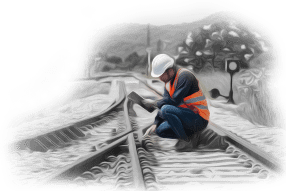
Case based sessions, LMS Support

Peer-learning & networking opportunities
Meet Our Faculty
Hear from Our Learners

Arindam Banerjee
Engineer at Hitachi Rail STS
It was a beautiful and an amazing journey with Railway Academy during the 100 Hours online certificate training in Railway Signalling for Railways and Metro. Our trainer has been supportive and really helpful. This training helped many of us to refresh our knowledge and skills on Signalling Concepts, Principles of Interlocking, Electrical & Relay Interlocking systems, Table of Control,out door design,SIP and ESP preparation, Electronic Interlocking, Modern Signalling, etc. Railway Academy has made a big impact. Thanks to all involved.

Prahlad Ghosh
Project Officer | WEBFIL LTD.
It gives me immense pleasure that I have completed "100 Hours Online Training in Railway Signaling for Railways" from Railwayacademy and finally achieved the certification. The Training course was very well-structured, informative and explanation with lots of Daily Use-Cases examples. It has certainly enhanced my Skillset & Knowledge about Advanced Signaling Concepts, Principles of Interlocking, Electrical & Relay Interlocking systems, Point Operations & Table of Control. I would certainly try to implement the learnings in our current project & in the future project opportunities. I would personally to thank the entire team of Railwayacademy and Special Thanks & Regards to Narayan Parvatikar Sir for the trainings and the individual attention towards every student. Thank You Railwayacademy.

Kirankumar Lingegowda
Lead Engineer, QuEST, GmBH
It was a beautiful and an amazing journey with Railway Academy during the 100 Hours online certificate training on Railway Signalling for Railways and Metro. Our trainer has been supportive and really helpful. This training helped me to enhance my knowledge and skills on Signalling Concepts, Principles of Interlocking, Electrical & Relay Interlocking systems, Point Operations & Table of Control, Electronic Interlocking, Modern Signalling, etc. Railway Academy has made a big impact.

Shahid Inamdar
Senior Executive – Design & Drawing, Vijaywargi Infra Engineers Pvt. Ltd.
It's a great experience with Railway Academy. The 100 Hours online certificate training in Railway Signaling for Railways and Metro helped us enhance our knowledge and skills on various aspects on Signaling. It also helped us learn about Principles of Interlocking, Electrical & Relay Interlocking systems, Point Operations & Table of Control, Electronic Interlocking, Modern Signaling, etc. This will definitely help me in my career.

Subhuti Vyas
Signalling Engineer and design works, DB Engineering & Consulting
It gives me immense pleasure that I have completed 100 hours of online training in Railwayacademy and finally achieve the certification. The training course was very well structured, informative and explanation. It has certainly enhance my skills and knowledge about Signaling Concepts, Principles of Interlocking, Modern Signaling, and Relay interlocking, point operational, table of control. I would certainly try to implement learnings in our current project and in future project opportunities. I would personally thank the entire team, special thank you regards to Narayan Parvatikar Sir for training and individual attention toward every student. Thank you so much.

Sanoj Kumar
MAINTENANCE ENGINEER (HITACHI RAIL STS)
I have completed 50hrs online Railway Signalling Design course . Mentors of Railway Academy are very good and helpful. Through this online training course I improved my knowledge and skills in Signalling concepts, Interlocking principles,SIP & ESP preparation, Table of Control. Railway Academy is very helpful for me. Thanks Railway Academy.
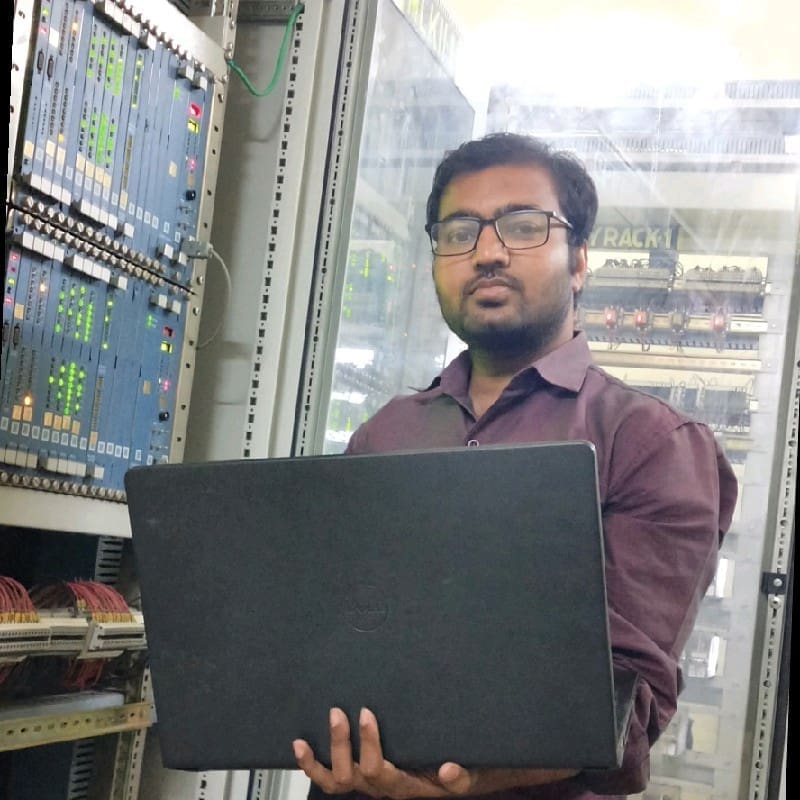
Priyanshu Jain
Railway signalling, Electronic Interlocking, Site Engineer, Hitachi Rail STS
Thank you so much Railway academy for gave the good and valuable time to us to Increased the knowledge and skills of railway signalling. You've made a big impact!

DINESH KUMAR THANGAMARIAPPAN
MIRSE | Solutions Engineering Manager | Frauscher Sensor Technology
Learning never exhausts the mind”. During the first half of this year, I had great opportunity to interact, collaborate and learn. Functional Safety for Railways and Metro from Railwayacademy. Thank you for all the support and encouragement.
Enrollment Process for Self Paced Courses
Buy Course
Get access to the Course within the next 24 business hours of enrollment. The access is valid for 365 days.
Get Course access details in your Inbox
Our team will send you your login credentials to access the course hosted on our learning management system.
Complete Course & apply for certification and assessment
Once you complete the course, write an email to [email protected] to get assessment link.
Get Started Today
20 hours Self Paced Certificate Course in Railway Signaling Circuit Design
₹15,000.00
Railway Course FAQs
The course promises to deliver:
– The relevant and in demand knowledge of subjects needed in the industry to help you grow in your career. After completing the course successfully, you can be confident about having knowledge to make your next career move.
– Internationally recognised certification from Railway Academy to get recognised in industry to differentiate your knowledge and get an edge in your next career transition.
These are intermediate and advanced level programs hence participants must check the eligibility criteria mentioned on this page
Majority of our students join our courses for following reasons :
– Shifting functions/roles.
– Majority of engineers consider joining our course to make a function/role transition (rolling stock to RAMS, telecom to railway signalling, maintenance to designing, designing to safety roles etc).
– Acquire knowledge to grow in your career.
– Signalling to signalling design.
– Signalling design to IRSE certification.
– Take transition to rail safety
Our course helps working professionals and freshers to acquire knowledge to excel in various railway careers.
Railway academy Certification.
Yes, Railway Academy certificates are recognised across the rail sector worldwide. Thousands of students have transformed their career through our courses. Please check success stories of professionals like you here to know about our course and certificate credibility.
We have a job support system in which we share job openings details, requirements of railway companies with our alumni through email, WhatsApp group and even social media channels.
Yes, this program will be very useful and rewarding for you if you are looking at developing your competencies in the railway industry.
100% of this training program will be online, self-paced mode. You will get access to recorded lectures for one year to study and complete the course. Once you complete the course you will have to appear in an online assessment. For more queries, please contact at [email protected]
This is a self-paced Course. You can study as per your convenience.
Around 3-4 hours of self-study in a week should be sufficient to learn and understand the concepts.
– Student Support is available 7 days a week, 24*7.
– You can write to us via [email protected] OR for urgent queries, WhatsApp us at : +918420658679.
– Additionally, our course coordinator will enhance the learners’ experience by engaging with them to ensure they are on track with upcoming deadlines, submissions, offer guidance, and resolve their non-academic queries.
– You will have access to all course updates for one year.
The assessment process is mainly online conducted through a multiple-choice based assessment through a portal. The duration of a typical assessment is between 60 – 90 minutes where the student attempts the test on laptop/PC in proctored mode. You need to score 60% to qualify the assessment.
Results are announced within a week of assessment schedule and certificates are sent in pdf format within 7-15 days of results announcement.
We shall be giving you two free attempts to qualify the assessment. Beyond two attempts you shall have to pay $50 per attempt to take the assessment again.
Your access to the Support Team is for one year from purchase of course and will be available between 11AM to 9PM Monday to Friday. The team will help you in resolving queries, during and after the course.
Post-enrolment of course, the LMS access will be provided to you within the next 24 business hours and will be available for a year. You will be able to access the complete set of previous class recordings, PPTs, PDFs, assignments. Moreover, access to our support team will be granted instantly as well. You can start learning right away.
Yes, the access to the course material will be available for one year once you have enrolled into the course. So enrol now with our course and enjoy the benefit of one year access to the learning material.
Learning pedagogy has evolved with the advent of technology. Our online training adds convenience and quality to the training module. With our support system, our online learners will have someone to help them all the time even after the class ends. This is one of the driving factors to make sure that people achieve their end learning objective. We also provide one year access of our updated course material to all our learners. So, join our Course online now.
All our programs are non-refundable and non-cancellable. We recommend that you read all information carefully before enrolling. However, we will do everything to ensure you have a smooth learning experience with us.
No. We accept one-time payment for the Course Fee. However you can make the payment through credit card and convert it into easy EMIs of your choice. At the time of checkout these offers will be shown by our financial partners.
Yes, you can contact us at [email protected] to refer your friend. Our team shall contact you to share referral benefits.
We have group and corporate discounts up to 30% based upon the number of enrolments. Please write to us ([email protected]) if you would like us to give a presentation to your training manager/HR manager to offer this course with corporate discounts.
